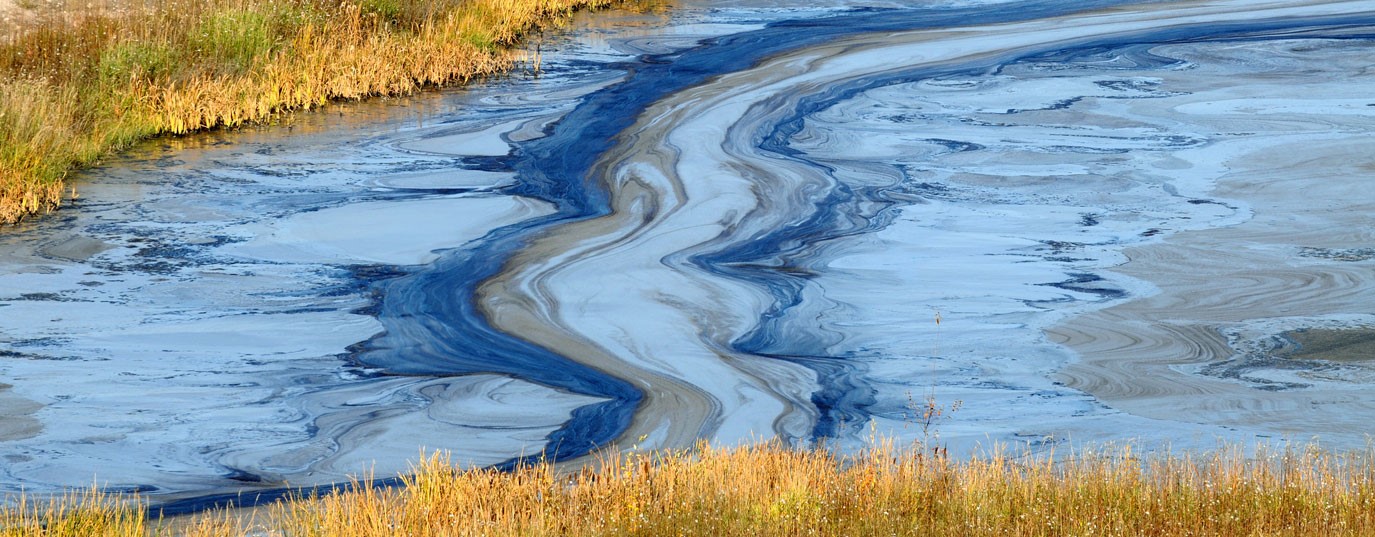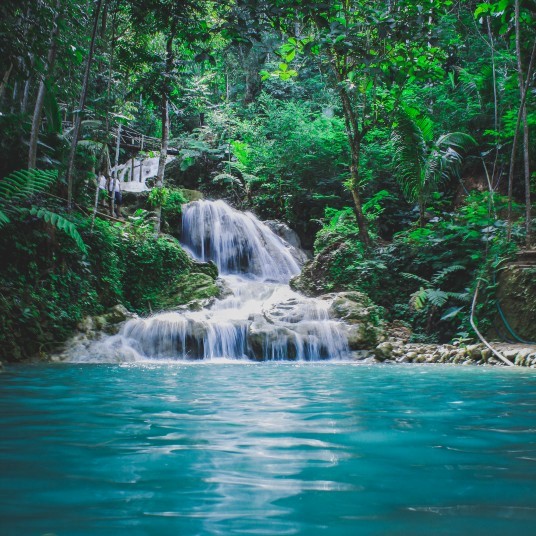HOW DOES WATER POLLUTION AFFECT US?
Water is a limited resource essential for life. And water pollution means that there is less and less available.

Water is a natural good essential for life on earth. It is present in all our daily activities. It is necessary to eat, clean ourselves or hydrate ourselves, but also for any social and technological development.
However, its scarcity and water pollution mean that millions of people have poor access to this much-needed good.
What am I going to read in this article?
- What is water pollution?
- Causes of the contamination of the water
- Consequences of water pollution
- The importance of taking care of water
- Solutions to the problem of water pollution
More than 2 billion people experience high water stress, while 4 billion experience severe water scarcity for at least one month of the year, according to the 2019 World Water Development Report.
“More than 2 billion people experience high water stress”
And the climate crisis worsens the situation. We have less and less water available, and this has become one of the main concerns of international organizations. That is why Sustainable Development Goal (SDG) 6 of the 2030 Agenda promoted by the UN seeks to guarantee the availability of water and its sustainable management and sanitation for all.
Making responsible use of water is essential. But before talking about solutions, what are the problems that threaten this precious commodity?
What is water pollution?
Water pollution occurs when harmful substances, often chemicals or microorganisms, contaminate a stream, river, lake, ocean, aquifer or other body of water, degrading its quality and making it toxic to humans or the environment.
This degradation of water quality directly translates into environmental, social and economic problems.
Causes of the contamination of the water

Human beings are the main cause of water pollution, which can be affected in many ways:
🏭 Industrial waste: still today there are many companies that do not properly treat their waste and end up dumping huge quantities of polluting products derived from their industrial processes into the rivers and even the sea.
🌡 Global warming: the increase in temperatures causes the alteration of water by reducing the oxygen in its composition.
🌲 Deforestation: causes the appearance of sediments and bacteria under the ground and the subsequent contamination of groundwater.
🐛 Pesticides: when used in agricultural fields, they filter through underground channels and reach consumption networks.
🛢 Petroleum: From time to time, crude oil or oil spills into the oceans due to inefficient transportation of this substance. The consequences are terrible both for the water and for the biodiversity it houses.
🗑 Landfills: they are responsible, on many occasions, for the contamination of soils and groundwater due to the dragging of polluting materials that the waste they store may contain, heavy materials such as lead or mercury that are transported to the land and nearby waters to the plant.
🧻 Wastewater: The UN claims that more than 80% of the world’s wastewater that reaches the sea and rivers is untreated.
🧪 Pharmaceutical and personal care products: The WHO explains that there are studies that have found concentrations of chemicals belonging to this type of products in waste water, drinking water and water sources.
Consequences of water pollution
What does water pollution affect?. Both to the environment and to the health of all living beings. For all these reasons, we must guarantee the availability of water, its sustainable management and sanitation for all, as stated in the sixth of the Sustainable Development Goals adopted by the United Nations in the 2030 Agenda. Among the main consequences of water pollution we can stand out:
🩺 Dangers to human health: Every year, unsafe water makes about a billion people sick. Diseases transmitted by contaminated water include cholera, malaria and typhoid. Even in wealthy nations, accidental or illegal discharges from wastewater treatment facilities, as well as runoff from farms and urban areas, contribute harmful pathogens to waterways.
🌾 Loss of biodiversity: When water pollution causes algae blooms in a lake or marine environment, the proliferation of newly introduced nutrients stimulates the growth of plants and algae, which in turn reduces oxygen levels in the water. This lack of oxygen, known as eutrophication, suffocates plants and animals and can create “dead zones,” where waters are essentially devoid of life. In certain cases, these harmful algal blooms can also produce neurotoxins that affect wildlife from whales to sea turtles.
🐬 Alteration of aquatic habitats: To thrive, healthy ecosystems depend on a complex network of animals, plants, bacteria and fungi, all of which interact, directly or indirectly, with each other. Damage to any of these organisms can create a chain effect, endangering entire aquatic environments.
💰 Economic losses: The World Bank itself stated in a report that the deterioration of water quality around the world is drastically reducing the economic potential of highly contaminated areas.
Why is it important to avoid water pollution?
The Earth is the planet of water. There is no species that inhabits this world that can survive without it. But it is a limited good. Only 2.5% of the planet’s water is freshwater, of which 69% is found in glaciers and ice, 30% in groundwater, 0.7% in permafrost and only 0.3% in lakes and rivers, the main source used for daily human consumption.
“Only 2.5% of the planet’s water is fresh water”

And the degradation of water quality and pollution mean that the amount of water available for our consumption is even lower:
- 3 in 10 people lack access to safe drinking water services and 6 in 10 lack access to safely managed sanitation facilities.
- Water scarcity affects more than 40% of the world’s population and this percentage is expected to increase. More than 1.7 billion people currently live in river basins where water consumption exceeds recharge.
- 4 billion people lack access to basic sanitation services, such as toilets or latrines.
- More than 80% of wastewater resulting from human activities is dumped into rivers or the sea without any treatment, resulting in pollution.
- Every day, around 1,000 children die due to diarrheal diseases associated with poor hygiene.
- Approximately 70% of all water withdrawn from rivers, lakes and aquifers is used for irrigation.
- Floods and other water-related disasters account for 70% of all natural disaster-related deaths.
What can you do to avoid water pollution?
If you want to collaborate to keep our waters clean, you can carry out different actions to prevent water pollution in rivers, lakes and seas. We leave you some simple tips to follow in your daily life:
🚱 Close the tap and save water when it is not necessary to use it. For example, when brushing your teeth, grooming yourself, or washing the dishes. This helps prevent water shortages and reduces the amount of contaminated water that needs treatment.
🚽 Be careful what you throw down the sink or toilet. Do not throw oils, papers, hair or any other waste down the drain.
❌ Reduce the use of pesticides and fertilizers. This will prevent these chemicals from leaching in harmful amounts into nearby water sources.
🗑 Do not throw trash into rivers, lakes or oceans. Help clean up any trash you see on or around the beaches and throw it in the appropriate recycling bin.
🌎 Take actions that help stop global warming. In this way you will help to encourage fewer droughts or any meteorological phenomenon that may affect the available water.